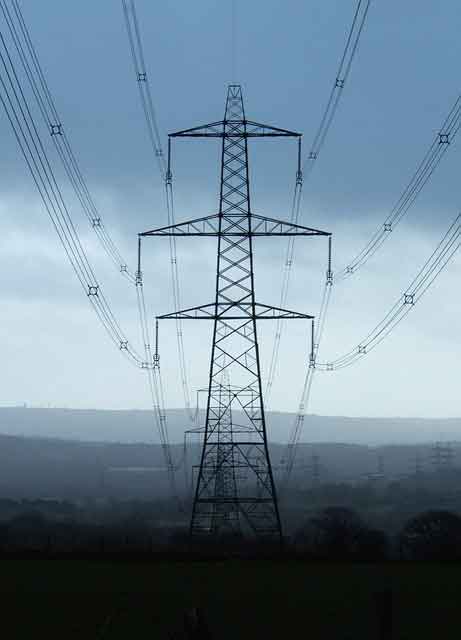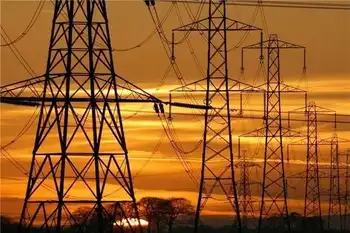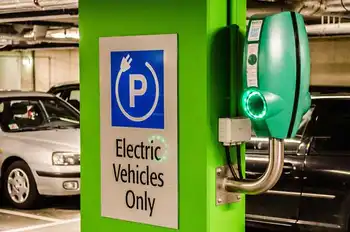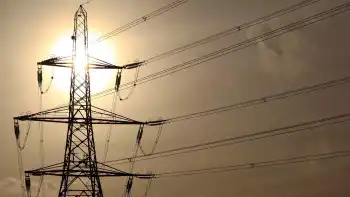Lowering the “doom”
By John Allemang, Globe and Mail
Substation Relay Protection Training
Our customized live online or in‑person group training can be delivered to your staff at your location.

- Live Online
- 12 hours Instructor-led
- Group Training Available
No matter how much confidence scientists have in the truth of their global warnings, getting the message out to the folks who are actually wrecking the planet has proved to be a far more challenging proposition. Cars still jam the streets, energy consumption increases, polluters sow doubt and denial and, as the Copenhagen summit on climate change nears, politicians still prevaricate as if there were an endless succession of tomorrows.
While there may well be an apocalypse looming on the far horizon, dire prophecies just don't cut it in the here-and-now of consumer culture. So forget the grim 100-year predictions for a second. The crisis at this very moment seems more like a crisis of communication.
Even the chair of the David Suzuki Foundation, James Hoggan, agrees: "Whether it's the scientific community, environmental groups, politicians, the media or business leaders, we haven't done a great job of conveying accurate scientific information to the public on the risks of climate change — or, indeed, of even conveying what climate change is."
Over the decades the climate-change war has been waged, many tactics used to soften up the masses have been unproductive at best and downright discouraging at worst. Even if you believe doomsday is coming, is it really such a good idea to talk it up and wallow in the death and destruction that will result if we don't change our awful ways and acknowledge Al Gore's inconvenient truth?
Such pessimistic predictions may have seemed effective as a way of winning attention (and the Nobel). But if the goal is to motivate people to useful action, say those who are experienced in environmental communication, it calls for something new.
"People have a finite capacity for worry," says Mr. Hoggan, the author of Do the Right Thing: PR Tips for a Skeptical Public . "When you overwhelm people with catastrophe, you don't actually engage them — you just produce an emotional numbness."
That's an intellectual evolution that Mr. Suzuki himself has gone through. His widely viewed TV series The Nature of Things once tended to depict nature as a beautiful pristine thing that bad humans habitually destroyed. Even now, his enemies feel able to undermine his mainstream scientific views by dismissing him as a merchant of doom.
Yet the current incarnation of Mr. Suzuki, in keeping with his foundation's communication techniques, has shifted from the dependable jeremiads of old to a message of everyday hope and more immediate usefulness. Last year, he co-wrote David Suzuki's Green Guide, a book that comes to grips with climate change through small-scale lifestyle adjustments such as biodegradable carpeting and energy-efficient appliances.
"I believe that one has to keep warning [that] the signs are there, the science is in," Mr. Suzuki said when the book came out. "But I realized years ago that you can get people to respond to fear, but you can't sustain it, because it's too soul-destroying."
So what will people respond to when fear doesn't do it? Mark van Vugt is a psychologist who teaches at VU University Amsterdam, and he's part of an emerging group of cognitive scientists studying the sometimes uneasy relationship between climate-change messaging and the workings of the brain.
He says the announcements to be made by global leaders in Copenhagen are of much less consequence than the decisions that are being shaped in the complex minds of ordinary human beings.
"It's very hard to look at a climate-change conference as a primary driver of individual behaviour," Dr. van Vugt says. "Copenhagen is about political solutions, but the environmental issues remain inherently uncertain for most people. So what we have to do is translate these issues into something meaningful at the individual level."
Acquiring information is the basic way the brain deals with uncertainty, and with a subject as complex and contested as long-term climate change, Dr. van Vugt believes the best approach is to localize the discussion: Make it less about far-off glaciers, because people find it hard to cope with a problem they can't easily influence, and more about local parks, forests or air quality.
Any kind of message for change, he believes, must focus on personal identity and our need to belong: "We're influenced by significant others and want to look good to our neighbours and friends."
So a good way to persuade people to reduce electrical consumption is to let them compare their rates with the rest of the community: Have utility bills award a smiley face to those whose consumption is lower than their neighbours and a frowning face to those who are profligate. People then will reduce without any other external motivator, Dr. van Vugt says.
But good behaviour at the individual level won't last if institutional behaviour is untrustworthy — environmental groups must not overstate a threat; scientists can't be seen to adjust data, even in a good cause (as researchers from the International Panel on Climate Change were recently accused of doing); businesses must not act as though they're a law onto themselves; and governments can't preach one thing and then do another.
"Suppose it turns out that the recyclables and organics we've been sorting and separating are just being tossed into one big garbage heap — well, that's a recipe for disaster," Dr. van Vugt says. "You've created goodwill only to destroy it."
While environmentally friendly behaviours are often presented as something altruistic and selfless, he suggests that incentives are key to any successful strategy. "Our primary motivation is to get ahead of others, to see ourselves rewarded for good behaviour while bad behaviour gets punished." So it doesn't hurt to awaken some of this potential goodness by, say, offering a free bus pass for those prepared to be wooed to public transit.
At the same time, it's useful to make green products more luxurious rather than crafting an image of asceticism and self-conscious suffering. "A nice, well-made mountain bike can cost as much as a car and may become a status symbol for just that reason," Dr. van Vugt says. This is what psychologists refer to as signaling potential: Look at me, I'm green and rich and sexy.
Orthodox environmentalists may shudder at the thought, and question the ability of sexy status symbols to stop the seas from rising. Yet the attractiveness of self-denial has proved to be a hard sell to those used to the comforts of our present wastefulness.
"The evidence so far is profoundly against the notion of sacrifice as a success strategy," designer Bruce Mau says. "We've been saying for decades, 'Get out of your cars,' but in not one of those years have there been fewer cars."
For Mr. Mau, solving the problems of climate starts with smart design — carpeting with its own 1-800 number that you call when it needs recycling, a Tesla electric car that looks more beautiful than a Ferrari, and buses that come with cup holders so you don't feel like you're downgrading quite so much from your car.
"If you describe a sustainable future in negative terms," he says, "and if you highlight what it's going to cost them, people aren't going to move there. Doom-and-gloom is a dead end."
The beauty of sustainability has an undeniable appeal. But between the aesthetics and the ascetics of climate change, there's still a lot of room to manoeuvre. A considerable amount of public goodwill was arguably wasted by the campaign to switch from incandescent bulbs to stylish compact fluorescents, a relatively low-impact improvement.
Those who listened attentively to the noisy messaging that promoted the switch to the compact fluorescents may well feel like their effort was wasted — and their commitment could be harder to summon for a more significant shift, such as reducing beef consumption by half. Politicians, after all, fear beef-industry interests, while the incandescent-bulb lobby is relatively powerless.
As the director of the Center for Climate Change Communication at George Mason University in Virginia, Edward Maibach has studied the diverse effects of environmental messaging. He is convinced that changing human behaviour isn't as challenging as many people — certainly many politicians — now believe.
He can tell you from his polling data that when people are asked about changing their behaviour and reducing energy use in response to climate change, 40 per cent of those surveyed report it had no negative impact on their lives — and 30 per cent actually say it improved their quality of life.
From this, he concludes that "there's a collectivist spirit out there that's waiting to be reactivated. People are waiting to be asked to sacrifice. By and large, politicians are fearful about doing the right thing about greenhouses gases because they think they'll be thrown out of office. Yet we've shown that for every one person who'll get upset if you reduce emissions, two and a half will stand up and applaud."
Political leaders who resist the gospel of self-sacrifice like to talk instead about lucrative opportunities — all those Obama-esque "green jobs" to be found in building solar panels and wind farms, retrofitting drafty houses and remaking cities for public transit while (bonus points here) ending dependence on foreign oil.
They don't bother pointing out that our democracy-driven tentativeness has allowed a more decisive China to begin setting itself up as the leading producer of wind energy, solar-panel equipment and electric vehicles.
While waiting for our politicians to see the light, Dr. Maibach encourages citizens to take actions that make green behaviour appear to be the rule, not the exception. Individuals will give up in despair if they think they're engaged in a thankless task of changing the world on their own.
Hope and optimism come from a public display of commitment — Dr. Maibach cites simple school-based programs where parents ask fellow parents not to idle their cars while waiting for their children, explain the reasoning behind their request and perhaps offer a stick-on decal to those who will take the non-idling pledge.
He says the public pledge by itself makes it three times more likely that potential do-gooders will follow through on their good intentions. And from creating that kind of group effect, it then becomes easier to change public policy. "Once you can develop this behaviour and show it to be the social norm, it enables politicians to change the laws more easily."
That is certainly a tactic the David Suzuki Foundation is turning to in its messaging, especially as the Stephen Harper government has shied away from a commitment to environmentalists' cause. The foundation aims to work with government in a non-partisan way, and yet Mr. Hoggan says that when he goes to Copenhagen, "I'm going to tell the media exactly what I think about our government's failure on climate change."
Though the Prime Minister purports to speak for Canada, polls show that a majority of Canadians want stronger action from the government, and this allows groups such as the David Suzuki Foundation to appropriate the Team Canada brand — drawing attention to the negative international response Canada's policies generate internationally (Canadians hate being seen as bad guys) while featuring concerned athletes on the Suzuki website who will challenge Conservative climate policies from an educated-jock perspective (global warming means cancelled ski races).
And thus the Canadian environmental movement, far from being marginal or radical, is seen at its most patriotic and mainstream.
All these feel-good tactics may be useful in garnering more widespread support. But will they genuinely be effective in combating climate change?
The Young Greens of the Green Party don't seem to think so. They recently mounted a more outraged and outrageous 1960s-style campaign, with the support of Green Party Leader Elizabeth May, that used the attention-getting slogan, "Your parents f*cked up the planet — it's time to do something about it. Live green, vote Green."
So it's not all happy faces out there. David McKnight, a journalism professor at the University of New South Wales, criticizes environmentalists for being "a rather elite movement, aimed at symbolic actions to attract media attention and at lobbying government."
He believes (and many in the environmental movement would agree) that the most effective messaging will come from a broader-based movement, similar to the anti-war campaign of the 1960s, that puts hundreds of thousands of people on the streets.
Milan Ilnyckyj, an Ottawa-based blogger on environmental issues, argues that there should be a greater focus on the issue of morality, which is to say immorality.
"If we can accept that climate change causes harm to current and future generations," he writes, "the argument that polluters have some right to keep behaving as they have in the past weakens considerably."
Echoing that thought, William Rees of the University of British Columbia's School of Community and Regional Planning suggests that the international community should develop ways to prosecute governments for criminal negligence on environmental issues.
Still, even this approach presupposes that science and politics in the end can speak the same language. And that's an assumption that doesn't sit well with Kevin DeLuca, a professor of communications at the University of Utah.
"The raison d'être of science is doubt," he says. "But doubt is fatal in politics." Doubt opens the doors for debate about climate change, and endless debate prolongs inaction indefinitely.
Environmentalists look for ways to appeal to a mass audience, and come up with an upbeat message about satisfying self-interest and feeling good. "And so you end up with a spirit-of-the-apocalypse message veiled in a 'don't worry, be happy' conclusion," Prof. DeLuca notes.
He has no confidence in such a contrivance and, unlike most environmentalists, he says he can't put on a happy face even if strategy seems to demand it.
"The problem with the happy-face message is that the future isn't going to be happy. The Earth can get along without people - people can't get along without the Earth."
But that's a message no one wants to hear.











